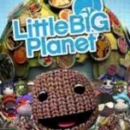I'm sorry, but as I said in an earlier post, either God is stupid or God is a sadist. Or of course God had nothing to do with it at all (I see no problem with God starting the process or something along those lines, hell the Pope is even fine with that).
An intelligent designer would not have designed the Koala to have a pouch that faces downwards when the creature spends the majority of time in the trees. The sheer suffering in the animal kingdom, the sheer inefficiency of a forest where all of the trees constantly attempt to outgrow the others to get more light shows me that nature clearly isn't planned by an intelligent designer.
Evolution via natural selection is the only thoery that I've ever read about that actually makes sense of these issues. I'm sure many aspects of the thoery will change (hence why scientests already call it neo-Darwinism as opposed to just Darwinism). But I'd rather put stock into a field where they can admit they're wrong, don't have texts that cannot change and rely on evidence as opposed to blind faith. Theology has lost out in every place that its come into contact with Science and I see no reason to think that theology will get any pionts this time.
Even if tomorrow Neo-Darwinism was proven wrong, that wouldn't mean that Creationism or any other theological ideas have the asnwers. I'm pretty confident that if Darwinism was knocked off tommorrow it'd be by another scientific theory, not by theology or theology attemping to parade as science.
I wont be presumptuous enough to say what people of faith should and shouldn't believe. But I think its a disservice to ones faith to put it constantly into an arena where it will mostly lose out (as it has in the courts and many other places). Why not just say its faith, I have faith in God/Gods/whatever and end it there?
Thankfully I'm not in such a position.
































































